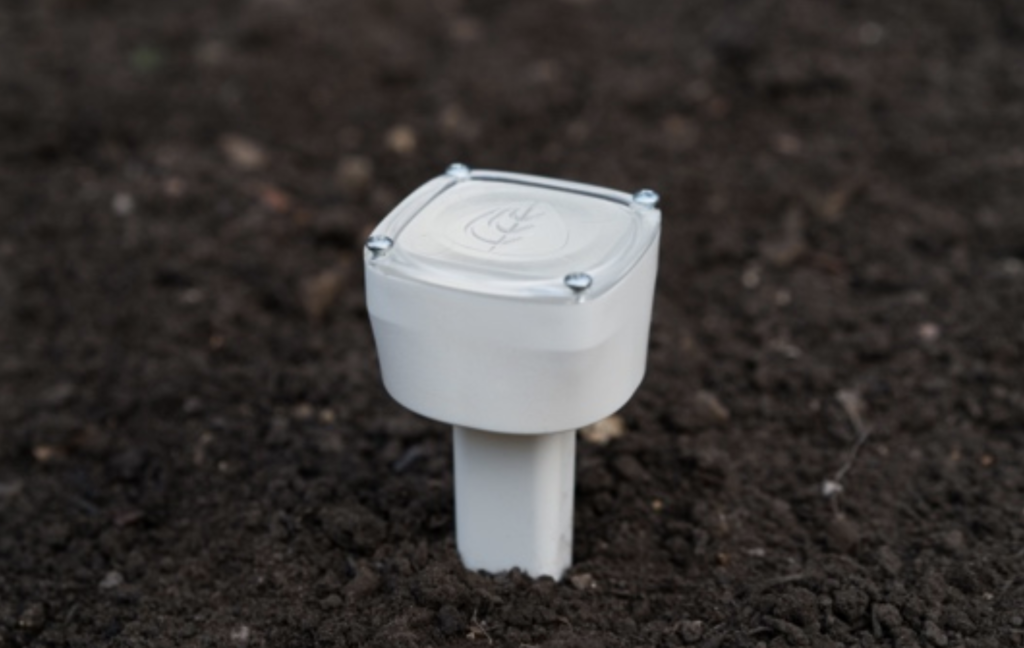Carbon sequestration is the process of capturing and storing atmospheric CO2 to reduce the amount in the atmosphere and slow down global climate change.
Soil carbon sequestration is a process in which CO2 is removed from the atmosphere and stored in the soil carbon pool. An estimated 13 gigatons of CO2 is transferred from plants to fungi annually which equates to around 36% of current annual CO2 emissions from fossil fuels, transforming the soil beneath our feet to a massive carbon pool and the most effective carbon capture storage unit in the world. This makes soil carbon sequestration a powerful solution for protecting our planet.
Cropland currently covers around 10% of the earth’s surface, and the soil microbial community in cropland plays a major role in carbon cycling, with soil microbial activity being considered a key driver to store more carbon in soils. By introducing microbial bioproducts to help increase the soils’ carbon sequestration potential, it could provide a game-changing opportunity to reduce global climate change and drive us towards net zero.

Chemical Fertilisers
Chemical fertilisers are seen as being essential to maintaining high crop yields, due to increasing rates of soil erosion and nutrient depletion in intensely cultivated cropland. However, excessive use of chemical fertilisers has also caused major issues, such as soil degradation, water eutrophication and soil carbon loss.
An alternative solution to chemical fertilisers are microorganisms, that solubilise existing nutrients in the soil, making them available for plant uptake. A biofertiliser will have a substantial impact on plant yields, soil health and water eutrophication, whilst the displacement of chemical fertiliser will reduce greenhouse gas (GHG) emissions associated with its production, transport and use.
Disruptive Innovation
At FA Bio, we will be focusing on the development of a sustainable biofertiliser and carbon sequestration bioproduct that will reduce the use of chemical fertilisers within agriculture and improve soil carbon sequestration whilst also improving soil-health, crop productivity and resilience. At the heart of this innovative dual performing bioproduct is a consortia of superior microbes discovered and collected using FA Bio’s unique and patented discovery technology, SporSenZ.

The synthetic fertiliser supply chain is responsible for an estimated 1.13 Gigatons of CO2 emissions a year which makes up 2.1% of all global GHG emissions. This disruptive dual performing bioproduct will increase the supply of key nutrients needed for plant growth, whilst reducing chemicals within agriculture, lowering associated GHG emissions by up to 25%. In addition, the bioproduct will also deliver microorganisms with high carbon sequestration potential into the soil, to increase local soil carbon sequestration. This strategy could potentially further reduce atmospheric CO2 by 1-2 tonnes, per hectare, per year, when balanced with regenerative agriculture management practices.
The Global Challenge
We face huge global challenges in our environment with our natural resources depleting and the planet struggling to support its growing population. It is therefore essential we start adopting more sustainable solutions that can support crop productivity and soil health, whilst also reducing atmospheric CO2 in order to protect the ecosystems that we depend on to maintain life.
As growers seek new production practices that allow them to farm more efficiently and effectively whilst also protecting the natural environments, FA Bio has the tools to discover and develop truly novel solutions that will support the next generation of sustainable agriculture.


